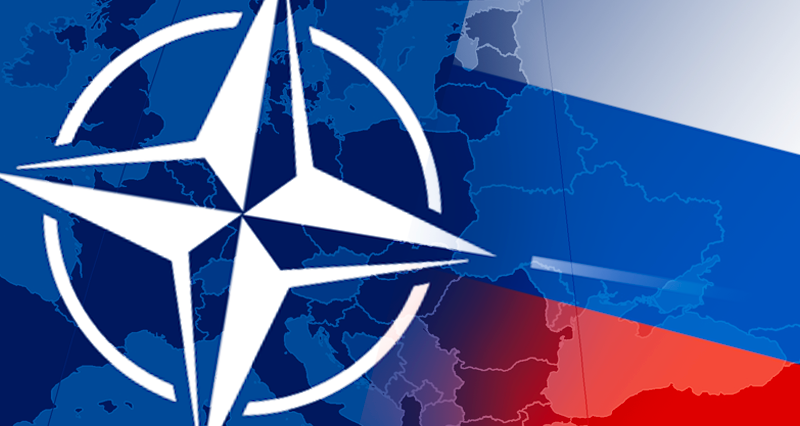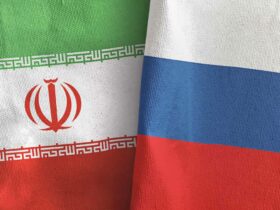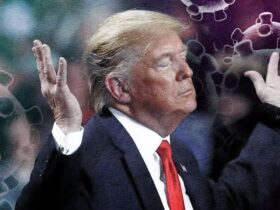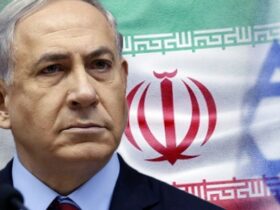Russia-NATO relations have been discussed since Russia’s military campaign against Ukraine. One of the most important issues affecting relations in the current context is whether NATO promised Russia that it would not “expand eastward” during the unification of the East and West Germanys.
In many of his speeches, Vladimir Putin refers to NATO’s “broken promises” from the early 1990s onwards. This is nothing new, Medvedev and Putin have said this several times during their tenure.
Whether these allegations are true or not is very crucial, because NATO has expanded eastward in five waves since 1990, involving 14 countries, and Russia bases its self-defense claims on this expansion.
Joshua R. Itzkowitz Shifrinson, a professor at Boston University, has done some of the most attentive and comprehensive works on the subject, some of which have been published recently. This article will be based on Shifrinson’s evidence from archival documents. But first, it is needed to emphasize two points that are indispensable for understanding the subject.
None of NATO’s pledges to the leaders of the Soviet Union have been written down in any agreement, signed by the two parties and codified. Indeed, no one claims to have such a document. The initial point of discussion is therefore what the status of formal and informal agreements and pledges is. The second issue is to make a distinction between direct and indirect promises made by NATO. A direct pledge means saying the interlocutor that “NATO will not expand eastwards”. An indirect pledge means actions and statements that do not contain the phrase “NATO will not expand eastwards” but take it as a given.
After presenting Shifrinson’s explanation of the status of informal promises, we will present them in categories. The topic of direct and indirect promises does not need further explanation, as reading them will make them clear.
Finally, it would be worth noting Shifrinson’s following claim: Anyone who lived through that period, listened to officials’ speeches on TV, read newspapers etc., knew that NATO had promised not to expand eastwards. This was a given and commonplace information that did not need to be explained further.
STATUS OF INFORMAL PROMISES
Shifrinson explains the status of informal promises both logically and historically as follows:
“Here even studies acknowledging that U.S. policymakers in February 1990 briefly discussed limits on NATO’s future presence risk understating the significance of U.S.-Soviet bargaining in 1990 by missing the importance of informal deals to politics, in general, and to Cold War diplomacy, in particular. In U.S. domestic politics, for example, an informal offer can constitute a binding agreement provided one party gives up something of value in consideration of payment in goods or services. A similar principle applies to inter- national politics: not only are formal agreements often the codiacation of arrangements that states would make regardless of a formal offer, but if private and unwritten discussions are meaningless, then diplomacy itself would be an unnecessary and fruitless exercise.
Moreover, informal agreements and understandings were especially important during the Cold War. The 1962 Cuban missile crisis, for example, was re- solved in part through an informal agreement whereby the United States and the Soviet Union each removed missiles near the other’s territory. In the 1970s and 1980s, an unofficial alliance developed between the United States and China, as each turned to the other to balance Soviet ambitions in Europe and Asia. And as Marc Trachtenberg shows, Europe’s Cold War or- der emerged from tacit U.S. and Soviet initiatives in the 1950s and 1960s that helped the two sides and ways to coexist within a divided Europe. Ultimately, informal arrangements abounded during the Cold War as the United States and the Soviet Union competed for power, inouence, and security.” (Shifrinson, Deal or No Deal?: The End of the Cold War and the U.S. Offer to Limit NATO Expansion, p. 18)
DIRECT PROMISES
1) THE STATE DEPARTMENT OF US
“The State Department itself suggested the trade-off, informing its embassies that ‘[t]he Secretary made clear that [. . .] we supported a unified Germany within NATO, but that we were prepared to ensure that NATO’s military presence would not extend further eastward.’”
Secretary of State, “Brieang on U.S.-Soviet Ministerial,” February 13, 1990, State Department Freedom of Information Act website (hereafter DOS/FOIA), https://foia.state.gov/Search/Results.aspx?searchText=Brieang%20on%20U.S.-Soviet%20Ministerial&beginDate=&endDate=&publishedBeginDate=&publishedEndDate=&caseNumber=
2) ROLAND DUMAS (French Foreign Minister at the time)
“‘We especially wanted to avoid a return to the Cold War,’ the former senior diplomat says today. According to him, the U.S.S.R. delegation had submitted two major requests to its Western allies at the time: one concerned maintaining monuments to the glory of the Red Army after the departure of its troops; the other was for a Western commitment that ‘there would be no movement of NATO troops into Soviet pact regions which [were] to be disarmed.’
“‘This discussion took place, first of all because the Russians asked for it [and] because we supported it: I was first, the Americans too, and the Germans, obviously…. I remember the scene very well, [U.S. Secretary of State James] Baker intervened after me, and said: “Even if Mr. Dumas had not asked for it, I would have asked for it,”’ he recounts, referring to the Western commitment for a non-expansion of NATO to the East.”
3) JACK F. MATLOCK JR. (U.S. Ambassador to Moscow at the time)
“The decision to expand NATO piecemeal was a reversal of American policies that produced the end of the Cold War. President George H.W. Bush had proclaimed a goal of a ‘Europe whole and free.’ Gorbachev had spoken of ‘our common European home,’ had welcomed representatives of East European governments who threw off their communist rulers and had ordered radical reductions in Soviet military forces by explaining that for one countries to be secure, there must be security for all. President Bush also assured Gorbachev during their meeting in Malta in December, 1989, that if the countries of Eastern Europe were allowed to choose their future orientation by democratic processes, the United States would not “take advantage” of that process. (Obviously, bringing countries into NATO that were then in the Warsaw Pact would be ‘taking advantage.’) The following year, Gorbachev was assured, though not in a formal treaty, that if a unified Germany was allowed to remain in NATO, there would be no movement of NATO jurisdiction to the east, ‘not one inch.’”
Source:
4) JOHN MAYOR (Prime Minister of the United Kingdom at the time)
“In March 1991 John Major, for instance, was asked by the Soviet defence minister, Marshal Dmitry Yazov, about eastern Europe’s interest in joining Nato. Major, according to the diaries of the British ambassador to Moscow, Rodric Braithwaite, assured him ‘nothing of that sort will ever happen’.
When Soviet Defence Minister Dmitri Yazov, asked the British prime minister in March 1991 about NATO’s plans in the region, John Major replied that he “did not himself foresee circumstances now or in the future where East European countries would become members of NATO”.
The article of Rodric Braithwaite (British Ambassador to Moscow at the time):
https://ecfr.eu/article/commentary_nato_enlargement_assurances_and_misunderstandings/
FCO archives and Russian archives, quoted by Yevgeni Primakov, Gody v Bolshoi Politike, Moscow 1999, pages 231-246.
5) DOUGLAS HURD (Foreign Secretary of the United Kingdom)
“Douglas Hurd, the British foreign secretary, told Soviet Foreign Minister Aleksandr Bessmertnykh on 26 March 1991 that ‘there are no plans in NATO to include the countries of Eastern and Central Europe in NATO in one form or another’”.
The article of Rodric Braithwaite (British Ambassador to Moscow at the time):
https://ecfr.eu/article/commentary_nato_enlargement_assurances_and_misunderstandings/)
FCO archives; and Russian archives, quoted by Yevgeni Primakov, Gody v Bolshoi Politike, Moscow 1999, pages 231-246.
6) HANS-DIETRICH GENSCHER (German Foreign Minister at the time)
“NATO declared unequivocally that ‘whatever happens in the Warsaw Pact, there will be no expansion of NATO territory eastwards’, that is to say, closer to the border of the Soviet Union.”
“The Soviets never returned to the question of NATO expansion into Eastern Europe, a fact he interpreted to mean that the issue had been settled.”
Genscher, Hans-Dietrich (1990): Zur deutschen Einheit im europäischen Rahmen, Tutzinger Blätter 2, pp. 3-13,
http://www.2plus4.de/chronik.php3?date_value=31.01.90&sort=003-001.
7) JAMES A. BAKER (Secretary of State of US)
In U.S. Secretary of State James A. Baker’s talks with Mikhail Gorbachev and Soviet Foreign Minister Eduard Shevardnadze on 9 February 1990, Baker agreed with Gorbachev’s statement in response to the assurances that “NATO expansion is unacceptable.” Baker assured Gorbachev that “neither the President nor I intend to extract any unilateral advantages from the processes that are taking place,” and that the Americans understood that “not only for the Soviet Union but for other European countries as well it is important to have guarantees that if the United States keeps its presence in Germany within the framework of NATO, not an inch of NATO’s present military jurisdiction will spread in an eastern direction.”
During talks with Secretary of State Baker in Washington on February 2, 1990, Genscher elaborated that, under his plan, “NATO would not extend its territorial coverage to the area of the GDR nor anywhere else in Eastern Europe.” Baker subsequently embraced Genscher’s idea and supported it both publicly and in private.
“Baker/Genscher Meeting February 2,” February 3, 1990, folder “Germany—March 1990,” box CF00775, Kanter Files, GBPL
Blanton, Thomas / Savranskaya, Svetlana (2017): “NATO Expansion: What Gorbachev Heard”, Briefing Book #613,
https://nsarchive.gwu.edu/briefing-book/russia-programs/2017-12-12/nato-expansion-what-gorbachev-heard-western-leaders-early.
8) ROBERT M. GATES (Deputy National Security Adviser of US at the time)
Other administration officials echoed Baker’s offer. In a conversation whose details came to light in 2013, Deputy National Security Adviser Robert Gates accompanied Baker to Moscow and discussed similar terms in a meeting with Soviet intelligence chief Vladimir Kryuchkov on February 9, 1990. As the declassified transcript of the discussion reveals, Gates affirmed that “we support the Kohl-Genscher idea of a united Germany belonging to NATO but with no extension of military presence to the GDR. This would be in the context of continuing force reductions in Europe. What did Kryuchkov think of the Kohl/ Genscher proposal under which a united Germany would be associated with NATO, but in which NATO troops would move no further east than they now were? It seems to us to be a sound proposal.”
Robert M. Gates, From The Shadows: The Ultimate Insider’s Story of Five Presidents (New York: Simon and Schuster, 1996), pp. 490–492; and Zelikow and Rice, Germany Uniaed and Europe Transformed, p. 184.
Memorandum of Conversation, “Robert M. Gates and V.I. Kryuchkov,” February 9, 1990, folder “Gorbachev (Dobrynin) Sensitive July–December 1990 [1],” box 91128, Scowcroft Files, GBPL.
9) HELMUT KOHL (West German Chancellor at the time)
Reinforcing Baker’s message, West German Chancellor Helmut Kohl and Foreign Minister Hans-Dietrich Genscher offered Soviet leaders similar terms the following day. These talks, moreover, carried real consequences, as Gorbachev agreed to negotiate the terms of German reunification following the discussions with Baker and Kohl.
Mary Elise Sarotte, “Perpetuating U.S. Preeminence: The 1990 Deals to ‘Bribe the Soviets Out’ and Move NATO In,” International Security, Vol. 35, No. 1 (Summer 2010), pp. 110–137.
INDIRECT PROMISES
10) FRANÇOIS MITTERAND (French President at the time)
M.S. Gorbachev: The presence of a future unified Germany simultaneously in both blocs.
F. Mitterrand: I do not think this proposal would be accepted, even though it is overall a smart one. All the while, I would like to remind you that I am personally in favor of gradually dismantling the military blocs.
(From the One-on-One Conversation of Mikhail Gorbachev with François Mitterrand on May 25, 1990)
https://nsarchive.gwu.edu/media/16133/ocr
11) GEORGE H. W. BUSH – MIKHAIL GORBACHEV TALKS
A telephone conversation between George H. W. Bush and Mikhail Gorbachev on February 28 helps to clarify the issue. During the call, Bush told Gorbachev that “the unified Germany should remain in NATO; that American troops will remain in Europe as long as the Europeans want them; and that there needs to be a special status for the former territory of the GDR.” Further, the president pledged that the United States would recognize the “legitimate security inter- ests” of all parties.104 Notably, in highlighting limits to NATO’s future role in Germany and recognizing the need to acknowledge Soviet “security interests,” Bush was echoing comments by Baker and Gates during their February 9 talks with the Soviet leadership. Combined, the new terms could be interpreted as explaining how NATO would avoid expanding eastward if Germany reunified within NATO.
Memorandum of Conversation, “Telephone Conversation with President Mikhail Gorbachev of the Soviet Union.”
12) CONDOLEEZZA RICE (Adviser to President George H.W. Bush and his Secretary of State James Baker at the time)
“If NATO’s two largest members were willing to limit their military presence in the former East Germany, then the Soviet Union had good reason to believe that prior pledges against NATO expansion would be upheld regardless of whether NATO jurisdiction formally covered East German territory. Indeed, even as discussion of special status for East Germany was in its early stages, Rice underscored the relationship between Western offers and Soviet concerns, writing to Scowcroft in mid-February 1990: ‘Moscow’s primary concern will be that there be no further shift—in perception or reality—in the East-West strategic balance.’” (Shifrinson, Deal or No Deal?: The End of the Cold War and the U.S. Offer to Limit NATO Expansion, p. 28)
Condoleezza Rice to Brent Scowcroft, “Preparing for the German Peace Conference,” February 14, 1990, and enclosure to the President, “Preparing for the Six Power German Peace Conference,” folder “German Reuniacation 11/89–6/90 [1],” box CF00182, Blackwill Files, GBPL.
13) NINE ASSURANCE and Commission on Security and Cooperation in Europe (CSCE)
“First presented by Baker during a mid-May 1990 visit to Moscow, the U.S. package—which became known as the ‘Nine Assurances’—combined points raised in earlier discussions into a single deal. For the purposes of this analysis, the three most important elements were promises (1) to gradually strengthen the CSCE by providing it with mechanisms designed to suggest that it might evolve into a pan-European security institution that would complement NATO and aid in the ‘development of a new Europe’; (2) to limit military forces in Europe via the Conventional Forces in Europe negotiations; and (3) to transform NATO into an increasingly ‘political’ organization. At a time when Soviet leaders were seeking ‘a new security structure’ and ‘some guarantee of security’ given changes in Europe, the United States de- signed these terms to “underscore our commitment to seek to meet Soviet concerns.’ After all, if the CSCE were to become a vibrant security institution, if NATO were to take on an increasingly political role, and if interlocking institutions were to ensure the United States and the Soviet Union a place in the ‘New Europe,’ then NATO’s eastward expansion would be unlikely as NATO became less important to European security.
Meeting with Shevardnadze on May 5, Baker tied promises on the CSCE, military reductions, and NATO transformation to Soviet concerns over NATO’s future and German reunification, telling the Soviet foreign minister that U.S. propos- als ‘would not yield winners and losers. Instead, [they] would produce a new legitimate European structure—one that would be inclusive, not exclusive.’
In response to that Shevardnadze told Baker that a revamped CSCE was ‘laying the basis for substantive guarantees of stability’ in Europe.” (Shifrinson, Deal or No Deal?: The End of the Cold War and the U.S. Offer to Limit NATO Expansion, p. 32).
James Baker, “My Meeting with Shevardnadze,” May 5, 1990, folder “Gorbachev (Dobrynin) Sensitive 1989–June 1990 [Copy Set] [2],” box 91127, Scowcroft Files, GBPL.
14) JAMES A. BAKER – MIKHAIL GORBACHEV TALKS
“NATO will undergo an evolution to become more of a political organization. Moreover, there will be a major review of military strategy in light of the reduced effectiveness of the Warsaw Pact and the need to strengthen the political role of the alliances, as you mentioned.”
“We are making an effort in various forums to ultimately transform the CSCE into a permanent institution that would become an important cornerstone of a new Europe. This institution would include all the European countries, the Soviet Union, and the United States. I proposed to hold a meeting of foreign ministers of 35 countries this September in New York, to prepare for the Summit of the CSCE.”
“Militarily, NATO will look completely different as the result of the changes currently taking place in Central and Eastern Europe.”
https://nsarchive.gwu.edu/document/22563-document-16-gorbachev-baker-memcon-may-18-1990
15) GEORGE H. W. BUSH – SOVIET LEADERS TALKS
“‘Bush reinforced these assurances when meeting the Soviet leadership in Washington on May 31–June 2, arguing (per his talking points) that NATO, the CSCE, and the European Commission (EC) made up ‘the cornerstone of a new, inclusive Europe,’ while a Conventional Forces in Europe agreement represented ‘the gateway to developing a new political and security structure in Europe.’ At a basic level, the United States claimed not to want—as Bush told Gorbachev on May 31—‘winners and losers’ but instead a Soviet Union ‘integrated [. . .] into the new Europe.’” (Shifrinson, Deal or No Deal?: The End of the Cold War and the U.S. Offer to Limit NATO Expansion, p. 31).
Memorandum of Conversation, “Meeting with President Gorbachev,” May 31, 1990, folder “Gorbachev (Dobrynin) Sensitive July–December 1990,” box 91128, Scowcroft Files, GBPL; and Rice, “Issues for Camp David,” briefing cards.
16) NATO’S “London Declaration on a Transformed North Atlantic Alliance”
United States led the “London Declaration on a Transformed North Atlantic Alliance,” The Declaration stated that NATO’s members pledged to “enhance the political component of our Alliance.” Besides, the Declaration called for the CSCE to “become more prominent in Europe’s future, bringing together the countries of Europe and North America,” while NATO governments committed to “working with all in the countries in Europe [. . .] to create enduring peace on this continent.”

















Leave a Reply